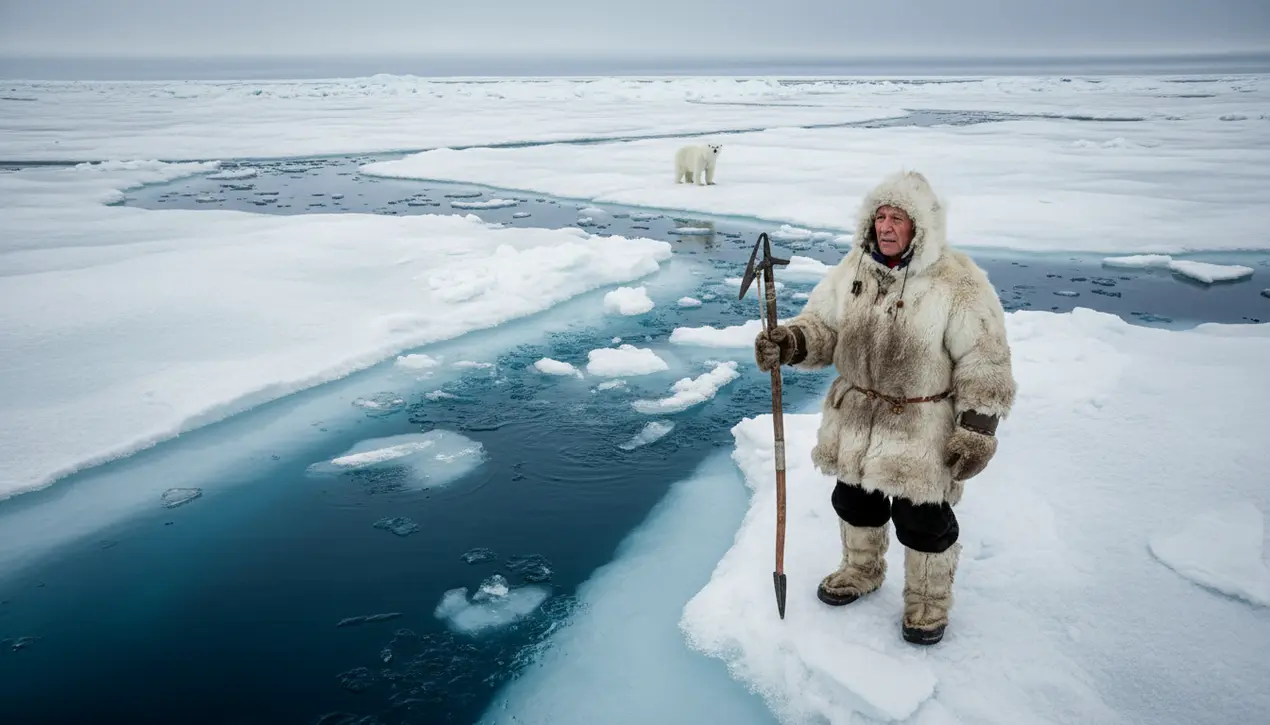
Scienceclimate sciencePolar Research
A Polar Bear Hunter Faces a Disappearing World
RA
Rachel Adams
10 hours ago7 min read5 comments
The ice beneath Hjelmer Hammeken’s feet is not just melting; it is taking with it a millennia-old way of life, a cultural heritage etched into the very fabric of his existence in one of Greenland’s most remote settlements. For generations, the rhythmic cycle of the hunt—the patient tracking across the vast, white expanse, the intimate knowledge of the polar bear's habits passed down from father to son—has been more than a livelihood; it has been a sacred dialogue with the Arctic environment.Now, that dialogue is being silenced by the relentless advance of climate change, a global crisis manifesting with terrifying speed at the poles. Scientists from the Danish Meteorological Institute have recorded unprecedented ice loss, with Greenland's ice sheet shedding an average of 267 billion metric tons of ice per year since 2002, a statistic that translates into rising anxiety for hunters like Hammeken.Where once the pack ice provided a stable platform from which to read the signs of the wild, it now fractures unpredictably, becoming a treacherous and unreliable partner. This is not merely an environmental shift; it is a profound cultural unraveling.The polar bear, or *nanuq*, is not just a source of food and fur in these communities; it occupies a central, spiritual role in Inuit cosmology, representing resilience, power, and a deep connection to the natural world. To witness its habitat disintegrate is to witness a part of their own identity fade.The consequences ripple far beyond Greenland's shores, serving as a stark microcosm of the global ecological reckoning we all face. As permafrost thaws and traditional hunting seasons shorten, the very survival skills that have defined these communities for thousands of years are becoming obsolete within a single lifetime.The story of Hjelmer Hammeken is a poignant, human-scale testament to a disappearing world, a silent alarm bell ringing from the top of the planet, urging us to recognize that the fate of a polar bear hunter in a remote settlement is inextricably linked to the carbon emissions and policy decisions made in distant capitals. It is a narrative of loss, yes, but also a powerful indictment of our collective inaction, a reminder that the most vulnerable are often the first to pay the price for a crisis they did the least to create.
#featured
#Greenland
#polar bears
#hunting
#indigenous culture
#climate change
#Arctic
#tradition
#environmental impact
Stay Informed. Act Smarter.
Get weekly highlights, major headlines, and expert insights — then put your knowledge to work in our live prediction markets.
Comments
Loading comments...
© 2025 Outpoll Service LTD. All rights reserved.